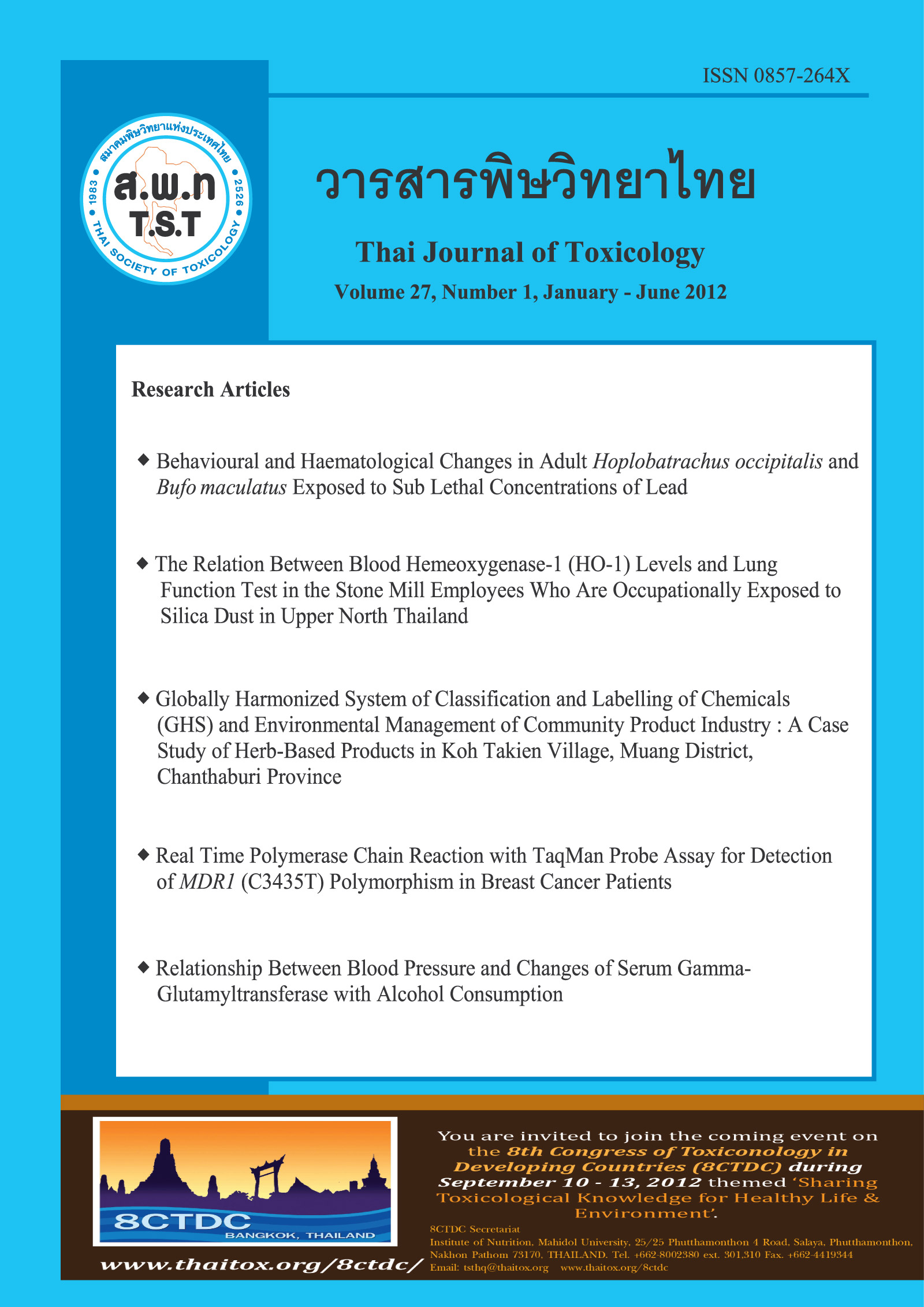Real Time Polymerase Chain Reaction with TaqMan Probe Assay for Detection of MDR1 (C3435T) Polymorphism in Breast Cancer Patients
Main Article Content
บทคัดย่อ
Breast cancer (BRC) is a huge public health problem in Thailand since it is the first cause of cancer death in Thai women. Screening for BRC high risk group who will develop an early stage of this cancer using genetic risk factor follow by performing special laboratory check up and early treatment is an important way to decrease the mortality of BRC. Multidrug resistance 1 gene (MDR1) located on chromosome 7q21.12 encoded for P-glycoprotein (P-gp), an efflux-pump on cell membrane, to excrete carcinogen and drug from the cell. It has been reported that on exon 26 at nucleotide position 3435 of human MDR1 there is a single nucleotide polymorphic (SNP) by the substitution of Thymine base (T) to cytosine base (C) which yielded 3 genotypes, CC genotype (wild type), CT genotype (heterozygous type) and TT genotype (mutant type). TT genotype carriers have been reported to be at higher risk than CC genotype carriers for several cancers. Thus, MDR1 (C3435T) polymorphism can be used as a genetic risk factor for screening of high risk group of BRC. However, MDR1 (C3435T) polymorphism detection by using the conventional polymerase chain reaction-restriction fragment length polymorphism (PCR-RFLP) assay is complicated and time consuming which is not suitable for a mass screening. Recently, a Real Time Polymerase Chain Reaction (RT-PCR) using Taqman Probe (TP) assay has been established for a quicker method to improve these problems. Therefore, the purpose of present study is to establish the RT-PCR-TP assay for MDR1 (C3435T) polymorphism detection in BRC patients and confirm the results of this assay with the PCR-RFLP assay. Ninety DNA samples, extracted from peripheral blood leukocyte of Thai patients with BRC, were examined for MDR1 (C3435T) polymorphism by using RT-PCR-TP and PCR-RFLP assay, respectively. The results of MDR1 (C3435T) polymorphism detection in all BRC cases by RT-PCR-TP assay were in complete concordance with PCR-RFLP assay (K = 1.0). In addition, RT-PCR-TP assay was a simple, faster and cheaper method for MDR1 (C3435T) polymorphism detection than PCR-RFLP assay. The results of present study suggest that detection of MDR1 (C3435T) polymorphism by using RT-PCR-TP assay may be a convenient, faster, reliable and suitable method for screening of BRC high-risk group in Thai women.


